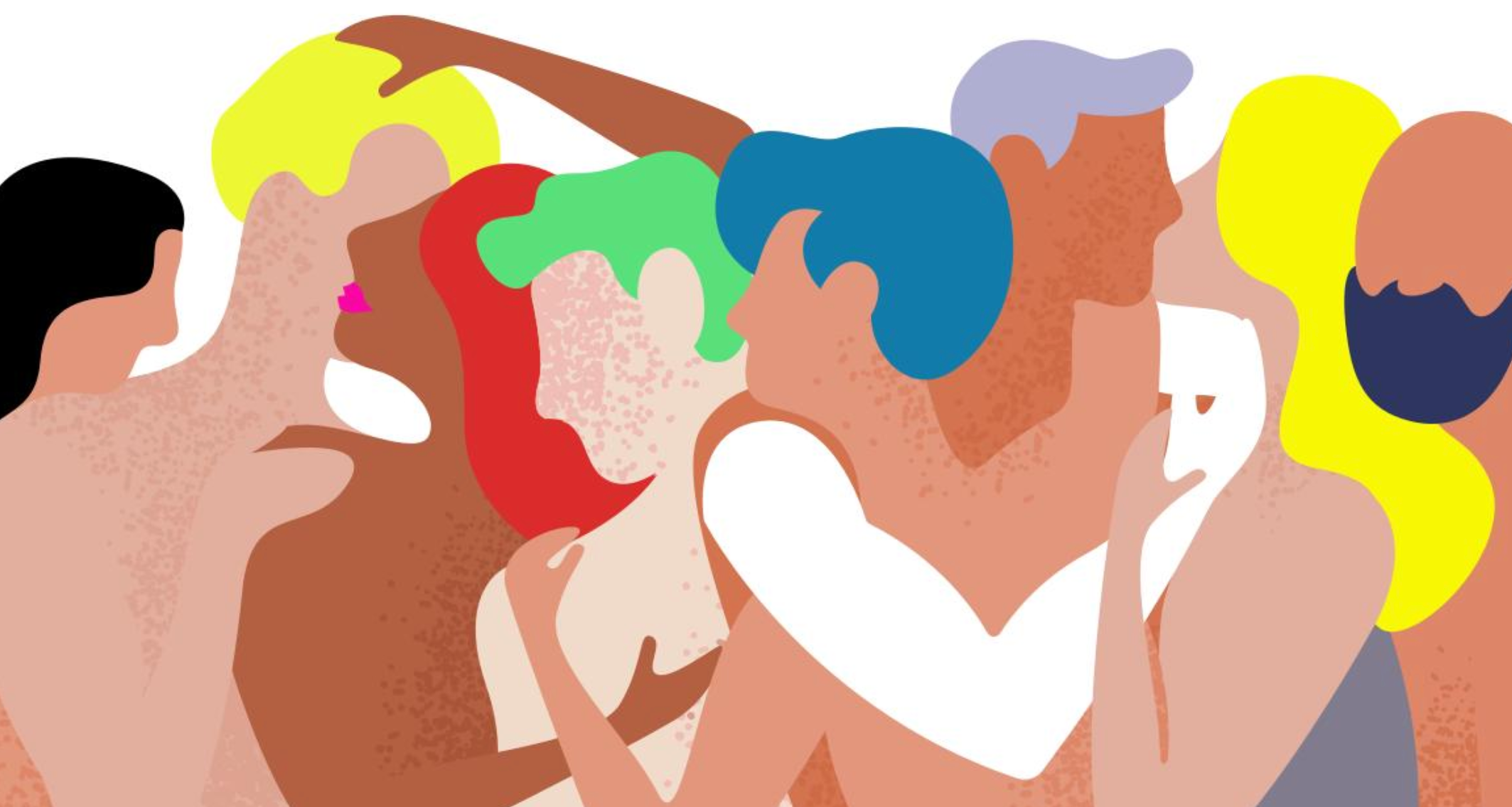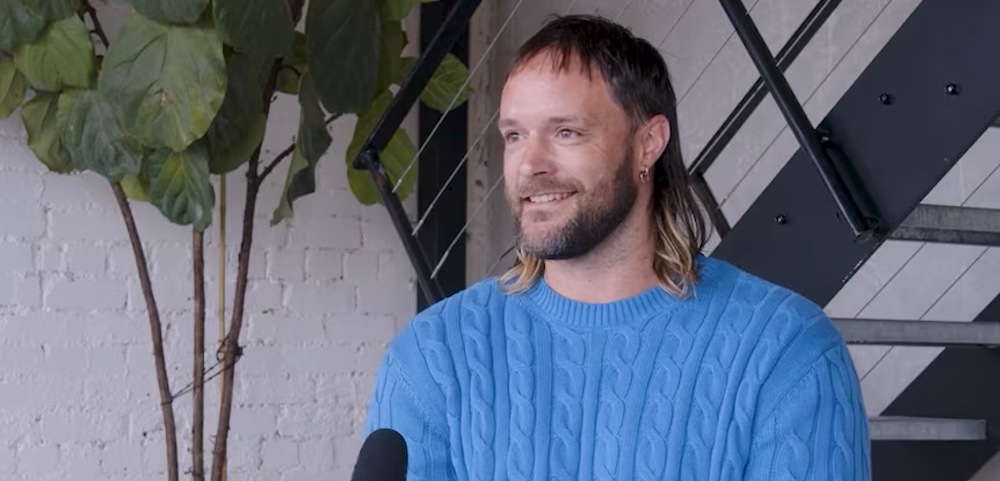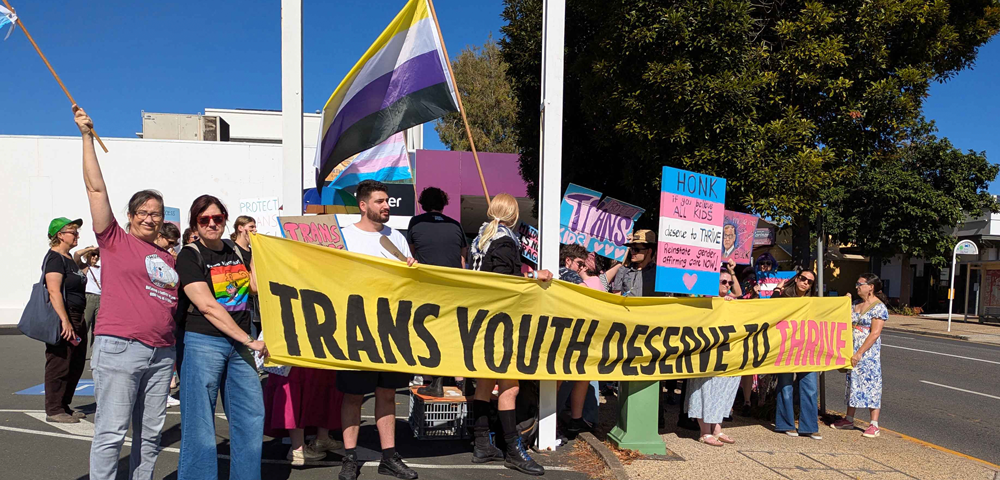
Let’s talk about polyamory

Three isn’t a crowd anymore. Dean Arcuri speaks to queer people about polyamory and how it has helped them develop stronger, intimate relationships with each other.
***
For some, it takes two to make a thing go right. But for many others, it takes more than two to make it truly work, and to make their love and relationships feel out of sight.
Kade realised he was attracted to men while he was married in his twenties.
When he came out to his wife as bisexual, they began to work through it and explore different types of relationships that would allow him to discover who he was without taking away from what they had.
“The definition of insanity is doing the same thing over and over and expecting the same result, and for me, that was trying to explore who I was while still being monogamous,” he says.
Kade then began to look into what it meant to be polyamorous – that is, having intimate relationships with more than one partner, with the consent of all parties involved.
“It was really important for me to explore my feelings and my relationships in an ethical way that didn’t disrespect what I had with my wife,” he says.
“I was still the same person with the same values and feelings, and that didn’t change just because I was also attracted to men.”
He says that polyamory gave both him and his wife newfound clarity within their relationship.
“As soon as we defined our relationship and opened things up, the problems in our marriage became really clear, and issues and feelings we had avoided were staring us in the face,” he says.
“While [opening things up] didn’t work out for us, I started to see that I could define my own relationship style and not feel caged into heteronormative monogamous expectations.”
When you look at it from the outside, poly relationships can seem really confusing to manage and maintain, taking on many forms and structures.
But when you break through misinformed preconceived notions, the honesty and openness that can come with polyamory not only make your relationships better, but stronger and more intimate as well.
Jordan is currently in a polyamorous foursome in which two gay couples have became one.
“It is imperative that all relationships are strong and solid,” he says.
“When this started all of our insecurities came to the forefront, and we quickly realised we couldn’t simply paper over the cracks of what was wrong in our respective couples.”
Jordan adds it’s easy to lose yourself in relationships, monogamous or otherwise.
“We had to take time to work on ourselves because when things weren’t right, we all felt it. If you can’t love yourself, how in the hell are you going to love three other people,” he laughs.
“It was because of this openness, honesty and awareness that we were able to define the rules and expectations of what we wanted, but it took a lot of tolerance before we got to the place we are now.
“It took a lot of work to get to a fulfilling and intimate space.”
A common misconception that circles around polyamory and open relationships is that it’s all about the sex.
But polyamory requires negotiation, understanding and consent from every person involved in the wider relationship for it to work.
When Hannah came out as bisexual, she wasn’t looking for partners that were poly, but didn’t limit herself to one partner while dating. She ultimately developed two separate relationships with her husband and partner because of the love and respect they had for both her and each other.
“Communication is very important to me, and when I started dividing my time between two people, I was confronted with what that meant,” she says.
“Our dialogue opened up a space that I’d never been in before.
“When you’re in a monogamous relationship there’s a lot that you don’t say or assume, and those expectations can be the nail in the coffin when it’s over, but as our relationships grew we had no choice but to confront our insecurities in order to make it work.
“In a monogamous relationship I set up rules to protect myself, but in a poly relationship the rules were there to protect my partners. It was how we checked in on what was going on and that they were comfortable with where we were at.”
When asking Kade, Hannah and Jordan what the secret was to their poly relationships working, they all agreed communication was key, as well as respectfully defining each of your relationships.
“You get to set the terms for yourself and for your partners and work out what’s best all round,” says Kade.
“It’s not just about the time you spend together, but you appreciate the time you make for yourself even more, and I’m a better partner for it,” adds Jordan.
“It’s about being self-aware,” says Hannah.
“Aware of your insecurities and being able to talk about them and being open to what creating a structure like this means.
“What shape your relationship forms, it’s about knowing the right shape for you and working with your partners to make that solid open and strong.”










Completely agree with Tony.
It’s fascinating how the author and these 3 individuals re-framed what is basically “swingers”, “polygamy/polyandry”, and “I’m so unsatisfied emotionally and sexually I need multiple people” into (1) an exercise in communication, and (2) a thing that LGBTIQ+ people do but heterosexuals don’t, based on the statement that monogamy is “heteronormative”.
Monogamy is some people’s choice to respect and commit to their partner by stop having sex with anybody else. It’s giving up all other people for that one special person because they are indeed special and worth forsaking others. It is certainly applicable to any person of any sexual identity and thus not heteronormative — even the gay penguins are famous for being a monogamous couple. Yes a monogamous couple may not obtain everything they want in life, but such is life in general, is it not? We all have needs, but we also have a choice what to do with them. We can choose to put our personal dissatisfaction first and tell our partner “I still want you but you’re just not enough”, or we can choose to accept our partner’s shortcomings and say “I have other needs but I’m giving them up because you are such a special person” or find one person with whom we can say that.
Calling monogamy heternormative is just as closed-minded and labelling as *some* of ‘us’ accuse heterosexuals to be closed-mined and labelling. How arrogant!
Monogamy is a *choice* no matter what one’s sexuality is. Additionally, it is bigoted to say it’s *only* heteronoramtive; and the resulting inference then is that heterosexuals have an inferior quality –and preference– of sex than those who opt for polyism.
‘Window shopping’ is something the majority of humans do, but my partner and I were very happy to be monogamous in our 25 years before he passed away. How would you know we, or anyone else of *any* other sexuality, have not enjoyed sex with the one person?! It actually is definitely possible.
Please; we should know better – stop the closed-minded snobbery. And if you want to be polyamoric, enjoy …that’s your choice. But don’t belittle anyone who wants and *prefers* monogamy; it may not be successful for some, but just like polyamorous people *experience* success in their choice of enjoying sex, so do monogamous people. Being and prefering monogamy is *not* pretending to be heterosexual; that is simply a slur. Only knock what you know.